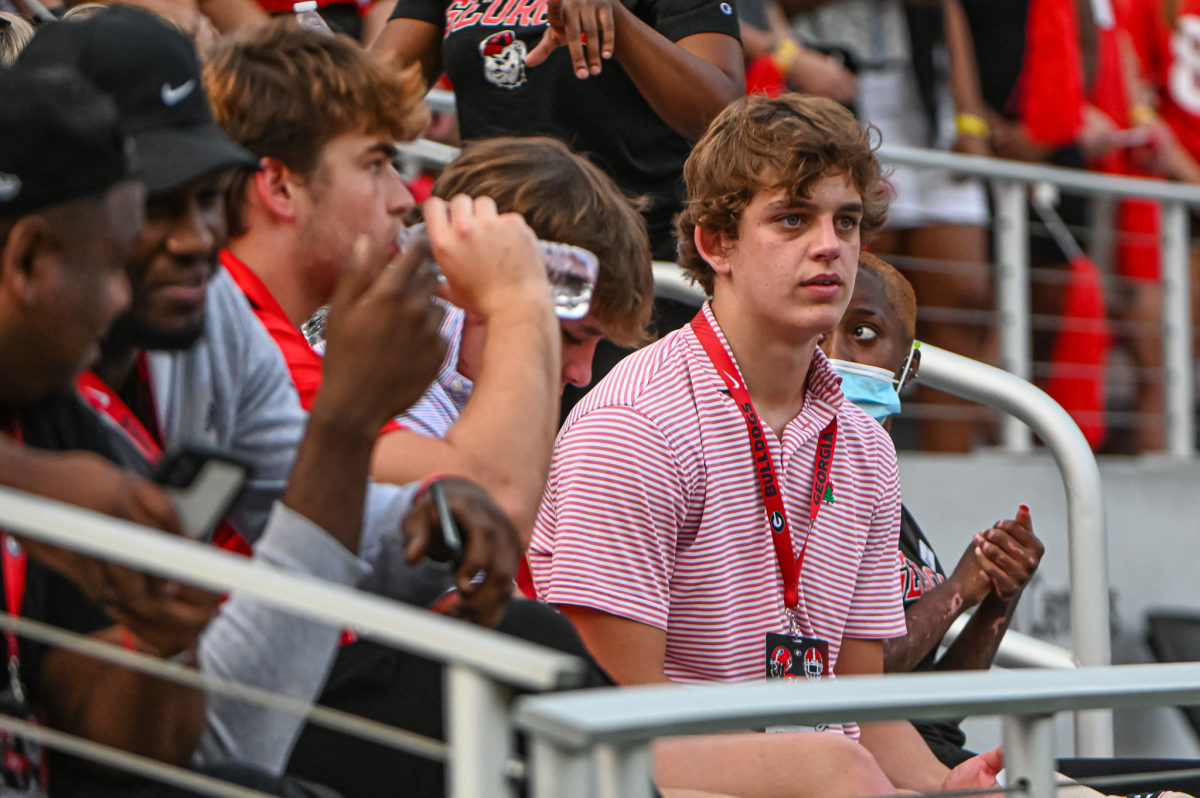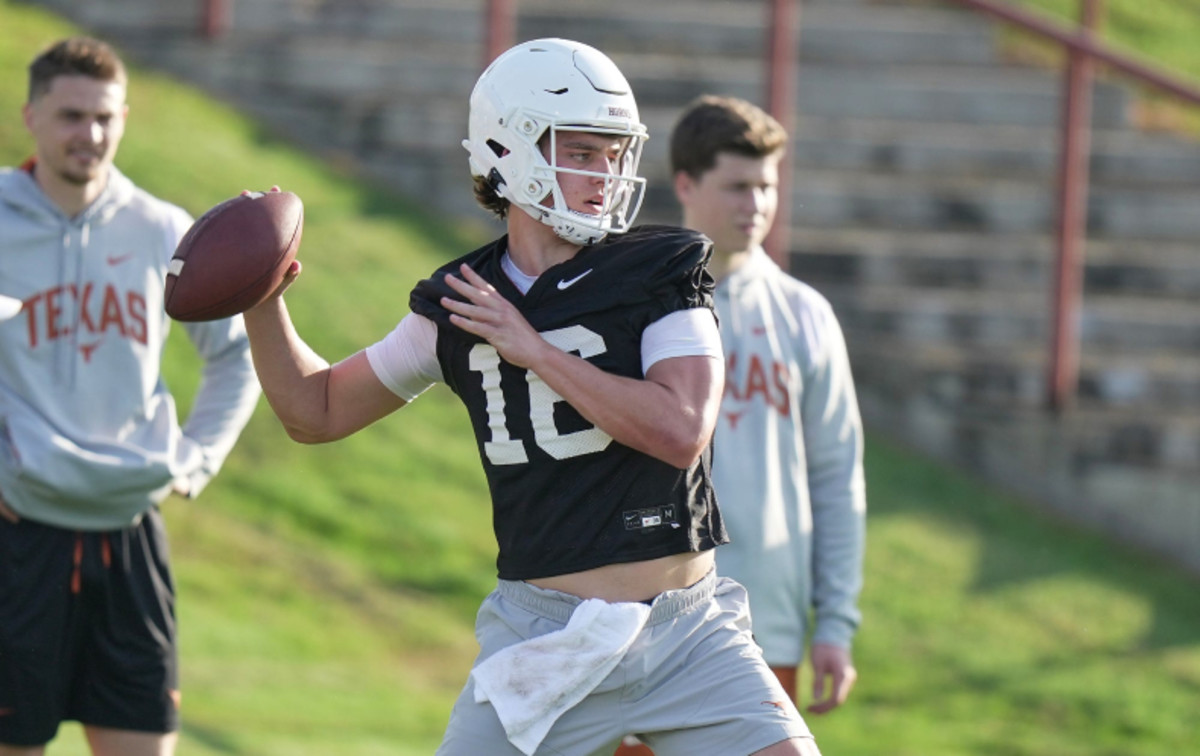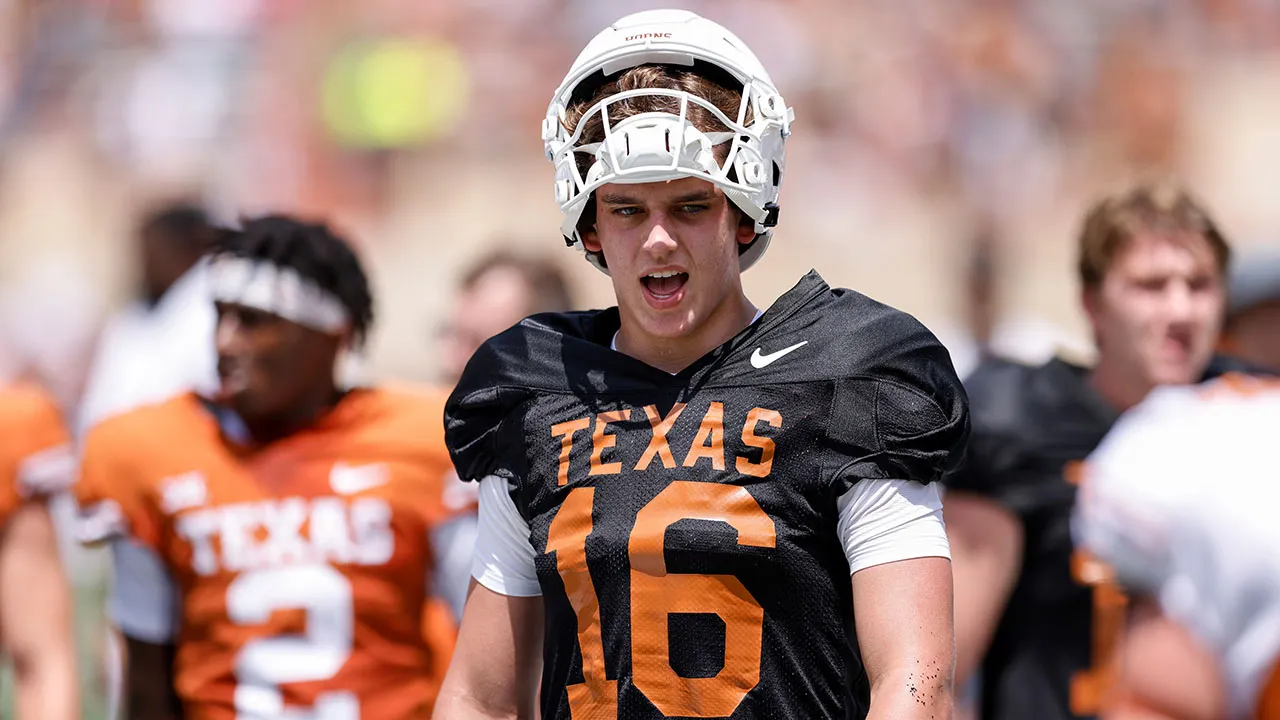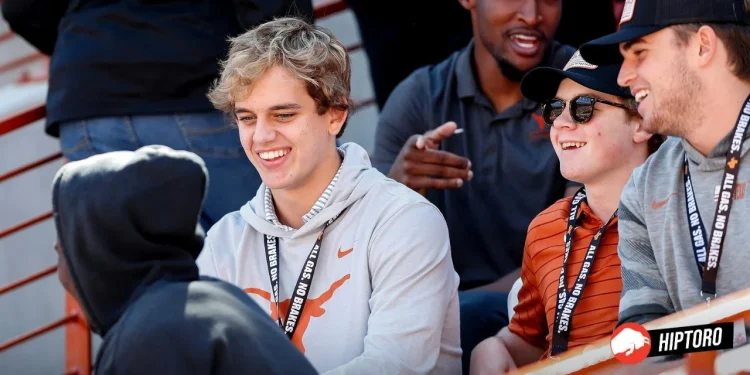Among the myriad of players who have embraced the opportunity, one notable absence stands out— Arch Manning, the highly-touted nephew of NFL legends Peyton and Eli Manning. Despite the family legacy and his own burgeoning football career, Arch has opted out of appearing in this latest edition of the game.
This decision has intrigued fans and commentators alike, raising questions about the motivations behind it and its implications for both Manning and the game itself.
After a lengthy hiatus, the gaming world is abuzz with the return of the EA Sports College Football franchise, a staple in the realm of sports video games that has been dormant since 2013.

The eagerly awaited comeback, marked by the release of EA Sports College Football 25, brings with it not only nostalgia but also a modern twist—the incorporation of Name, Image, and Likeness (NIL) agreements that allow college athletes to profit from their appearances in the game.
This significant change, fueled by the NCAA’s recent acceptance of NIL, has seen over 10,000 players opting in, securing not just their representation in the game but also a $600 payment and a complimentary game copy.
A Legacy of Excellence: The Manning Family and Arch Manning’s Journey
The Manning family name is synonymous with football excellence. Peyton and Eli Manning, Arch’s uncles, have left indelible marks on both the collegiate and professional football landscapes. With storied careers at the University of Tennessee and the University of Mississippi, respectively, they’ve set high standards in terms of performance and achievements.
Arch Manning is more important to EA Sports than the the College football game is to him. That last name carries weight & this family knows it. This is football’s first family. The Manning’s were powerful enough to manipulate the top 5 of the 2004 draft seamlessly.
Arch’s goals… pic.twitter.com/OPZJrtcS5y
— Ryan Clark (@Realrclark25) March 7, 2024
Arch Manning, on his part, has been navigating his own path with a high level of scrutiny and expectation. His high school career was nothing short of spectacular, breaking records previously held by his famous uncles and earning him the status of a top-rated prospect.
However, his collegiate journey at the University of Texas has been more of a slow burn, with Manning playing as a backup last season and facing stiff competition for the starting quarterback role.
Arch Manning’s Decision to Opt-Out: Beyond the Surface
Manning’s decision to opt out of EA Sports College Football 25 is multifaceted. While many speculate that his current position as the second-string quarterback at Texas might be a factor, there’s more depth to his choice.

It’s a statement about readiness, self-perception, and perhaps a strategic move regarding his burgeoning career. Arch Manning is not just another college athlete; he’s a brand, a legacy, and a future star navigating the complex intersection of sports, media, and business. His decision to wait until he’s “the guy” in Texas speaks volumes about his awareness and ambition.
Implications for EA Sports College Football 25 and Future Athletes
Arch Manning’s absence from EA Sports College Football 25 might be seen as a minor hiccup in the grand scheme of the game’s return, but it also highlights the nuanced relationship between individual athletes and larger commercial enterprises.
As NIL deals become more commonplace, the decisions made by high-profile athletes like Manning will undoubtedly influence the landscape of collegiate athletics and its representation in media and entertainment.

Conclusion: A Game-Changing Moment for Arch Manning
As EA Sports College Football 25 rolls out to the public, it does so amid changing dynamics in college sports, where the lines between amateurism and professionalism continue to blur. Arch Manning’s decision to opt out is a reminder of the individual choices that shape this evolving landscape.
For fans, it’s a call to adjust expectations and perhaps appreciate the game—and the players—in a new light. Whether on the field or in the virtual realm, the saga of collegiate football continues, driven by talent, legacy, and the ever-present lure of the game.

Source: Give Me Sport









